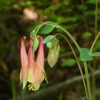Investigating the footprint of climate change on phenology and ecological interactions in north-central North America
By Kellen Calinger

Module Description:
In this lab module, students work with large datasets to evaluate long-term temperature change and its impacts on flowering phenology, pollinator emergence and arrival phenology, and emergent trophic mismatches. Students address questions such as: Have long-term temperatures changed throughout Ohio? How will these temperature changes impact plant and animal phenology, ecological interactions, and, as a result, species diversity?
In this lab module students will:
-
Produce and analyze graphs of temperature change using large, long-term data sets (synthesis, Analysis)
-
Develop methods for calculating species-specific shifts in flowering time with temperature change (Synthesis)
-
Describe the ecological consequences of shifting plant and animal phenology (Comprehension)
-
Evaluate data "cherry-picking" as a climate change skeptical tactic (Evaluation)
This lab module includes open-ended inquiry, guided inquiry, and cooperative learning teaching strategies. Students also practice critical thinking skills.
Teaching Setting:
This lab was designed for ecology students to complement in-class lectures on climate change.
QUBES Citation:
Calinger, K. (2018). Investigating the footprint of climate change on phenology and ecological interactions in north-central North America. Ecological Society of America, QUBES Educational Resources. doi:10.25334/Q4667X
|